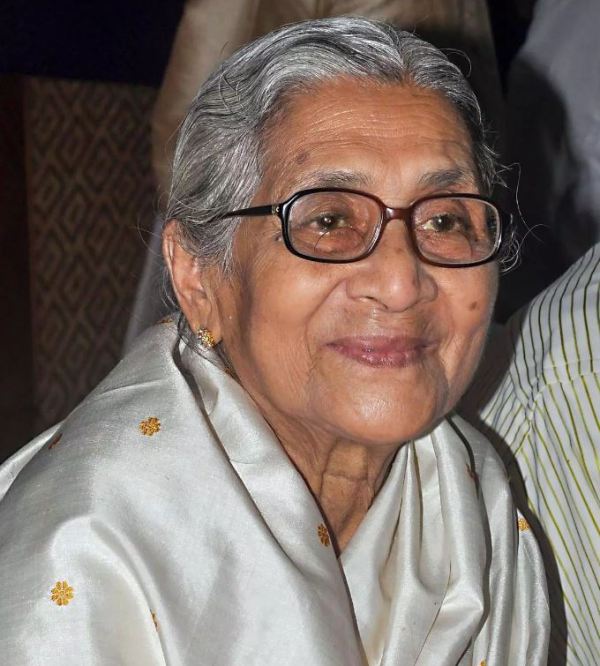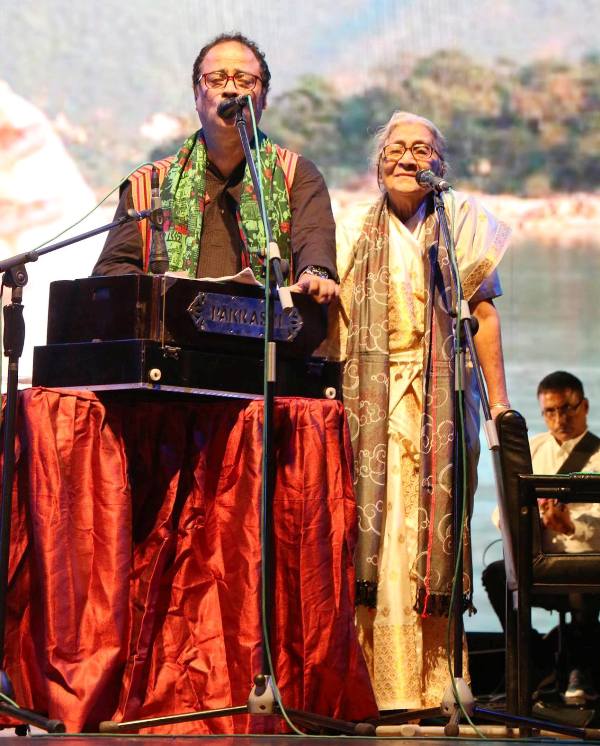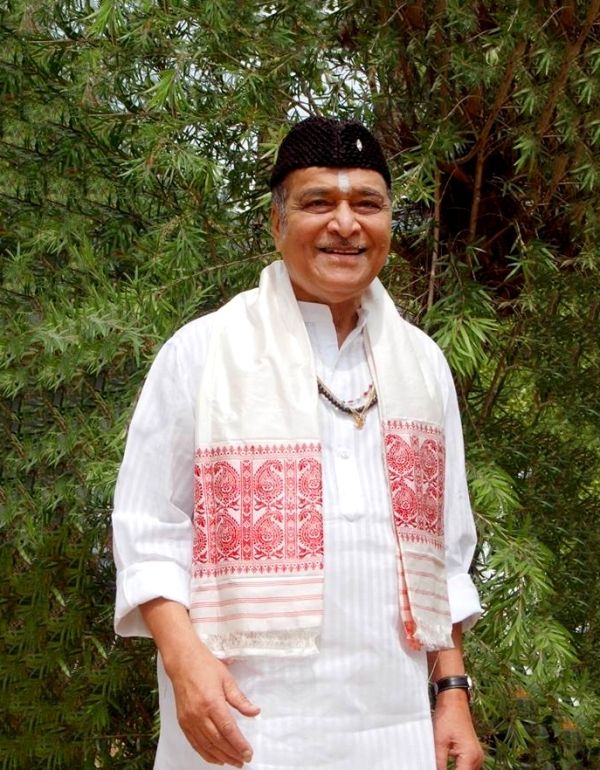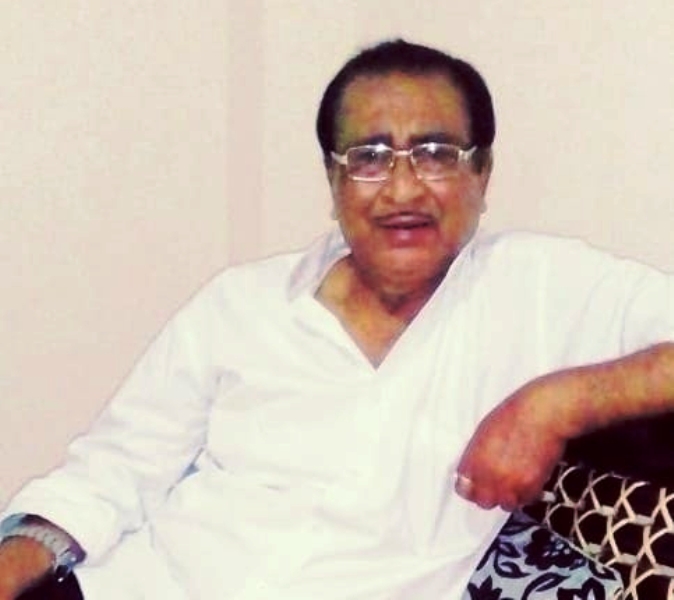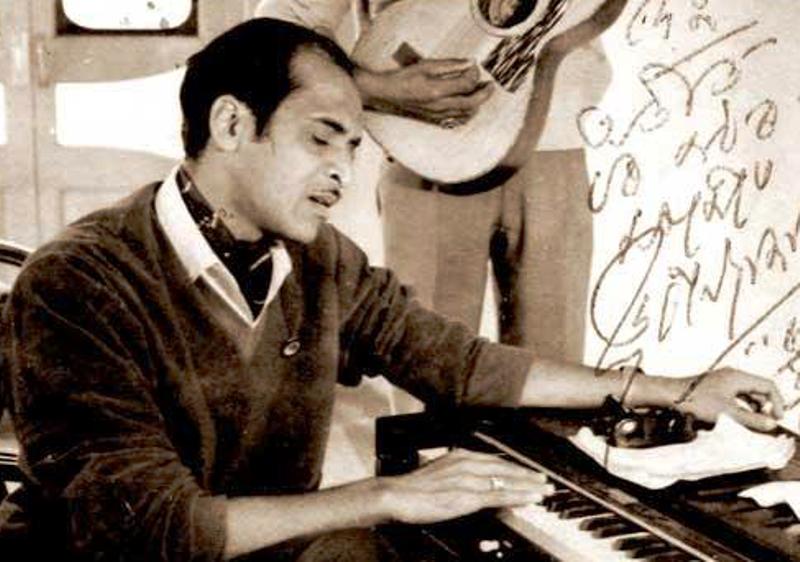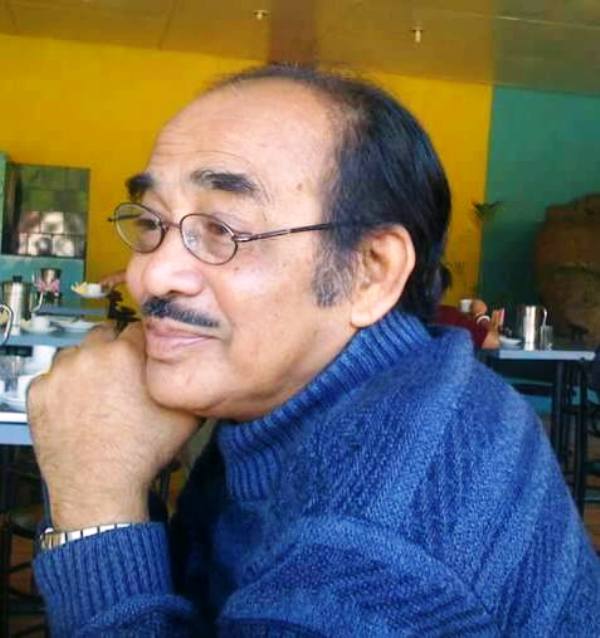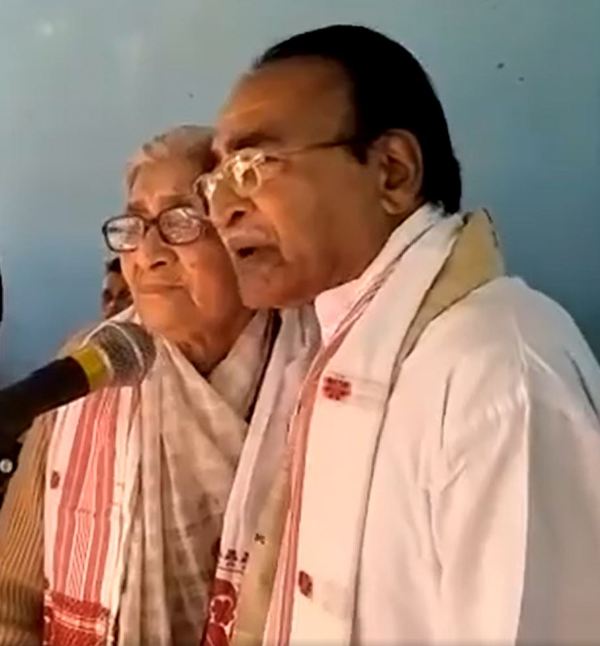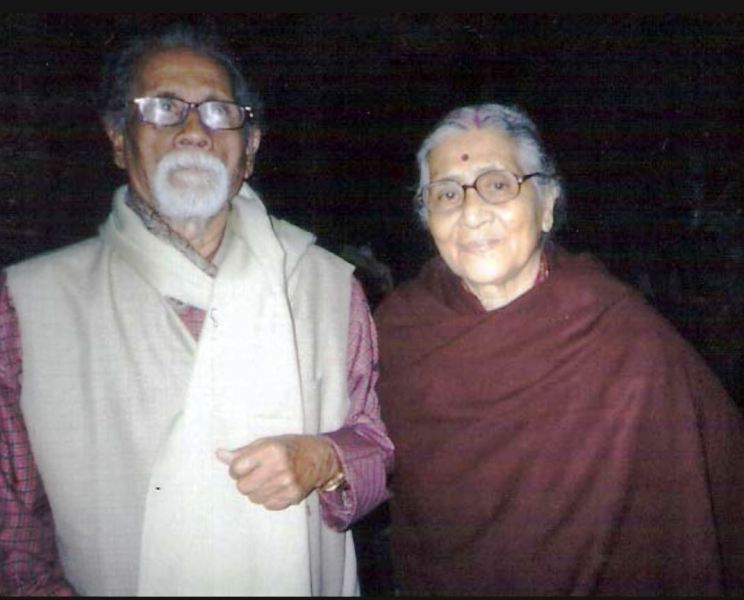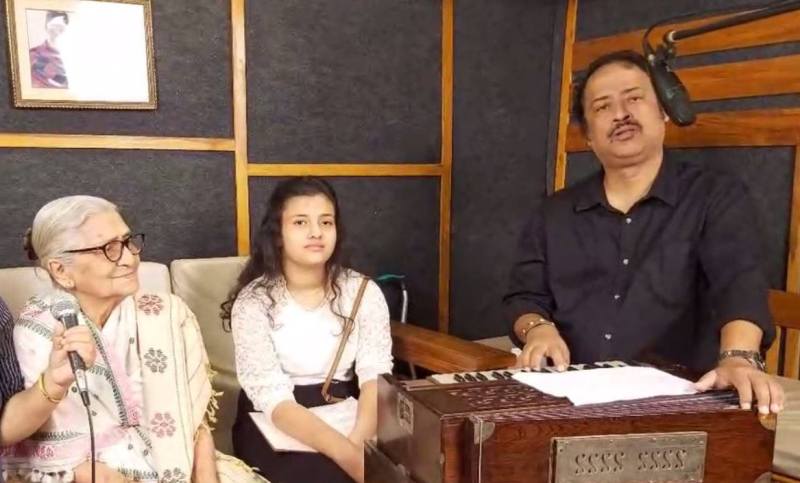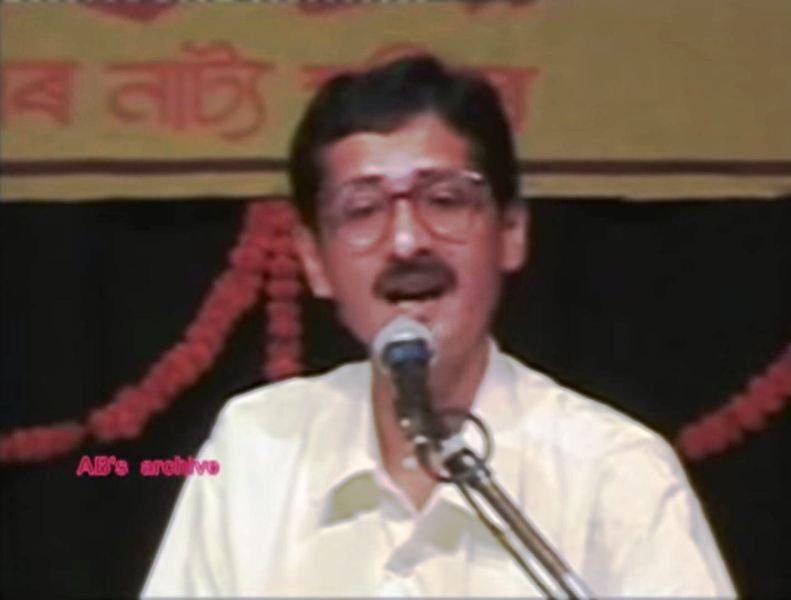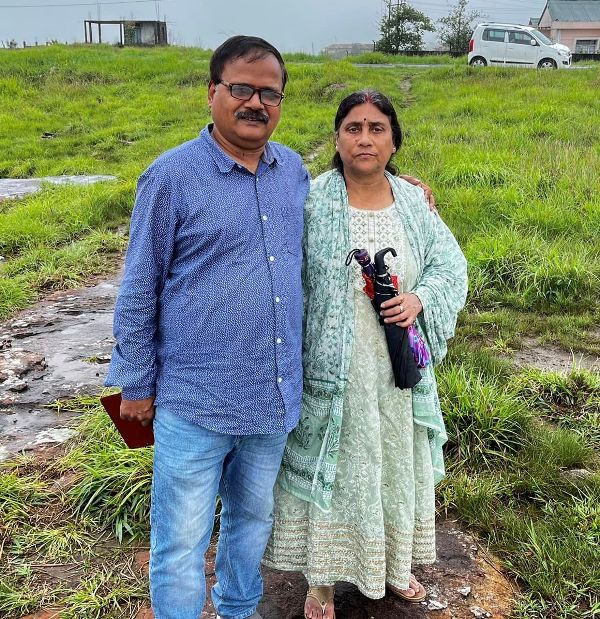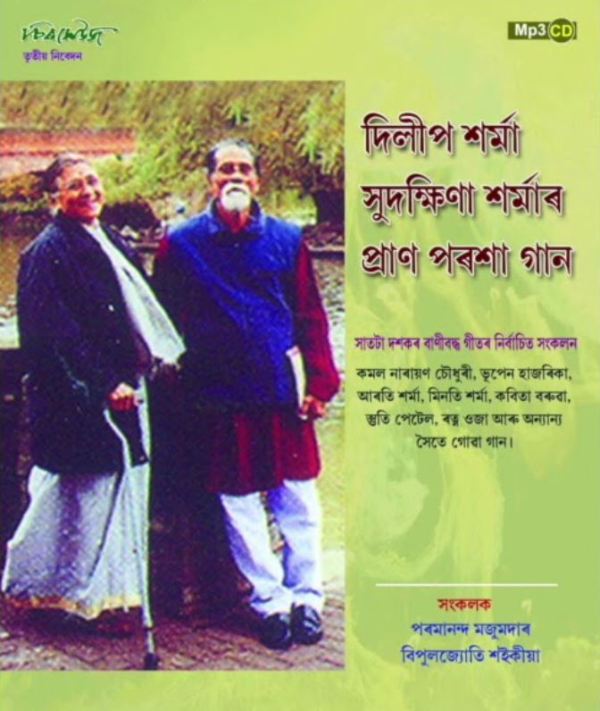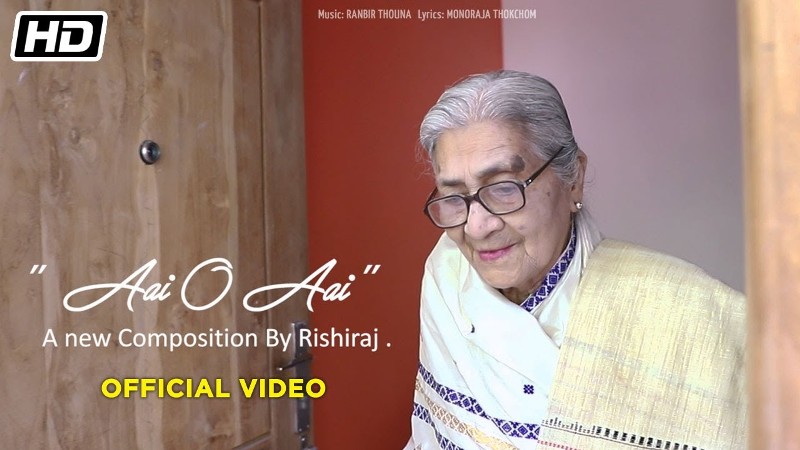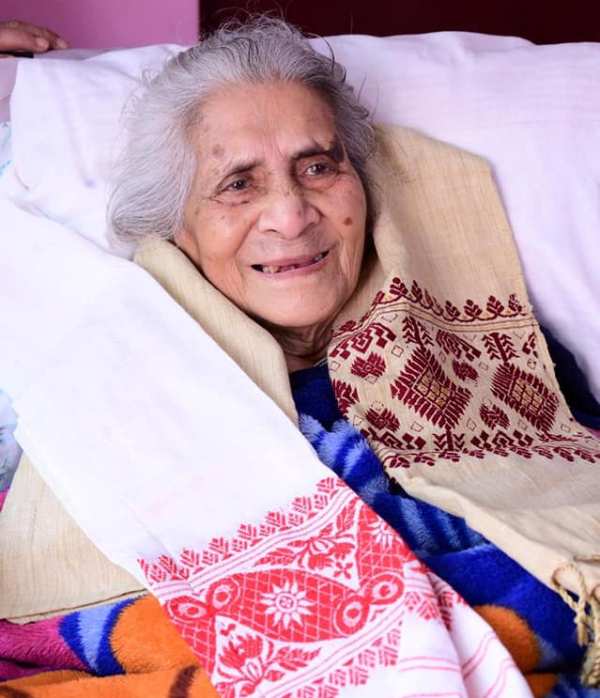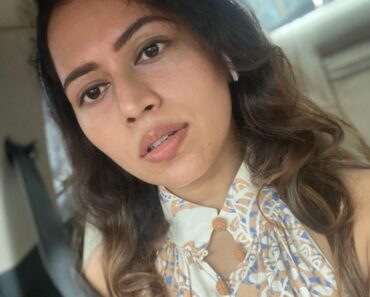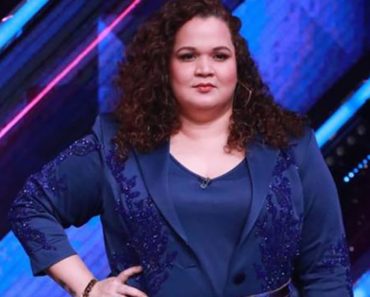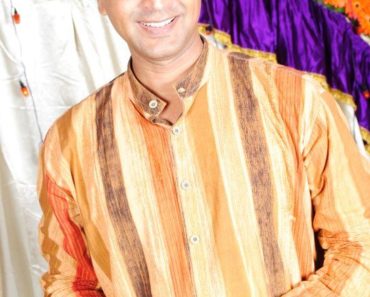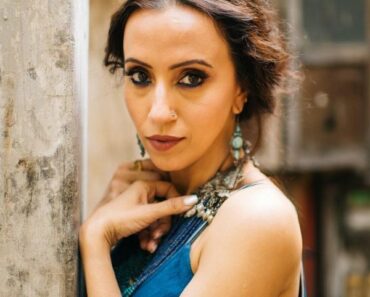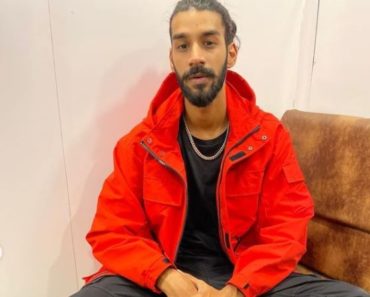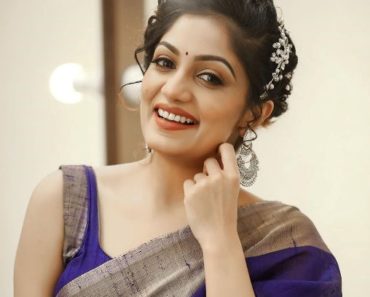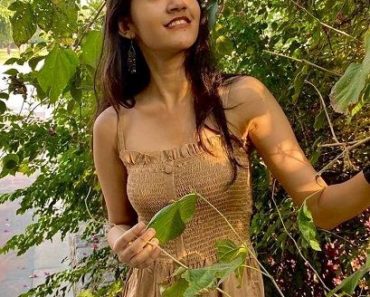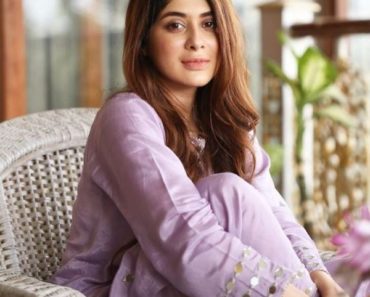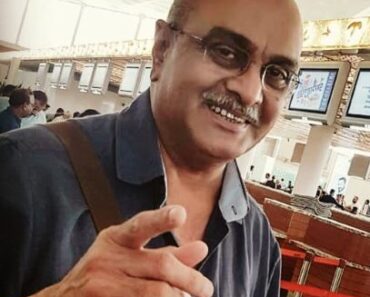Sudakshina Sarma (1934-2023) was an Indian singer associated with Assamese music. During her eight-decade-long career, Sarma recorded songs in a variety of classical and modern genres across Assamese music including Borgeet, Kamrupi Lokgeet, and Goalpariya Lokogeet. She played a significant role in popularizing Jyoti Sangeet and Rabindra Sangeet. She is known for voicing the evergreen Assamese songs Kotha Aru Shur, Jetuka Bolere, and Sharatkalor Rati. She was the sister of legendary Assamese singer Bhupen Hazarika. She died due to age-related ailments on 3 July 2023.
Contents
Wiki/Biography
Sudakshina Sarma was born as Nirupama Hazarika [1]Frontline on Wednesday, 8 August 1934 (age 88 years; at the time of death) in Bharalumukh in Guwahati, Assam Province, British India (now Guwahati, Assam, India). Her zodiac sign was Leo. Her paternal family hailed from Nazira, Assam. Growing up in a culturally inclined artistic family with 9 siblings, Sudakshina was first exposed to music listening to her mother who would sing lullabies and Assamese folk songs to her children. Her passion for music was later fueled by her singer-brother Bhupen Hazarika. In an interview, she recalled listening to Bhupen’s songs on the radio during her childhood and said,
There were only two radio sets in the locality — one at Tarun Ram Phookan’s house and one at MP Rohini Choudhury’s residence. Whenever, Bhupenda informed us, we used to rush to either of these houses to listen to his songs. But sometimes it was frustrating since we usually missed the first portions of the song while conducting the initial formalities in their household.”
She would accompany Bhupen to his musical events in Dhubri, Tezpur, Sonitpur, and Mangaldoi, exposing her to artistic and cultural activities in Assam. During this time, she got the opportunity to interact with the stalwarts of Assamese culture like Rupkonwar Jyotiprasad Agarwala, Bishnu Prasad Rabha, playwright Phani Sarma, and others. She used to listen to the gramophone records of Pankaj Mullick, Saigal and Kanan Devi during her childhood. She did her schooling at Panbazar Girls’ High School in Guwahati. Her mother was an active member of Assam Pradeshik Mahila Samiti. Sudakshina would accompany her mother to the Samiti’s meet, where she met various freedom fighters and activists like Chandraprabha Saikiani, Amalprava Das, Begum Abida Ahmed (Fakhruddin Ali Ahmed’s wife), etc. She got married in 1954 when she was about to appear for her BA final exams at Handique Girls’ College, Guwahati. [2]The Telegraph
Physical Appearance
Hair Colour: Grey
Eye Colour: Black
Family
Parents & Siblings
Her father, Neelkantha Hazarika, was a music composer and ACS officer. Her mother, Shantipriya Hazarika, was an active member of Assam Pradeshik Mahila Samity. Sudakshina was the fourth among the ten children of her parents. The eldest child was Sudakshina’s brother Bhupen Hazarika (1926-2011), widely known as Sudha Kontho, was a renowned playback singer, lyricist, musician, poet, actor, artist, editor, filmmaker, professor, and politician from Assam. Bhupen was eight years older than Sudakshina.
Her brother Samar Hazarika is a playback singer and an employee at the Food Corporation of India. She had a sister named Sushma Hazarika. Her younger brother, Balen Hazarika, was a cultural activist and educationist. He was the music secretary of Cotton College and a retired professor at Saint Anthony College, Shillong. Her brother Jayanta Hazarika (singer and composer) was the ninth among the 10 children. One her brothers’ names is Nripen Hazarika.
Husband & Children
In 1954, she got married to the singer and composer Dilip Sarma, the son of Dinanath Sarma, the founder and editor of Assamese Magazine Awahan.
Dilip first made an acquaintance with Sudakshina in 1943 in Calcutta, where she was recording Kalaguru’s song Nahor Phule Nusuwai Tagar Phule Suwabe under Senola Records. Dilip recalled his first meeting with Sudakshina and said,
During one such programme at the Kumar Bhaskar Natya Mandir in Uzan bazaar, Uday Shankar presented a novel dance drama with his troupe members performing robotic artistic movements. That night, she (Sudakshina) also presented a beautiful classical dance number.”
The couple had two sons, Rituparna Sarma and Rishiraj Sarma, and a daughter, Rijushree Sarma Majumdar. Both her deceased sons, Rituparna Sarma and Rishiraj Sarma, were prominent singers. Rishiraj Sarma was also a lawyer. Her daughter, Rijushree, is married to noted writer Paramananda Majumdar.
Caste
She belonged to a Jalia Kaibarta family, Assam’s Dom fisher caste. Historically, they were considered an untouchable caste. Doms are listed as Scheduled Caste for Reservation in India. [3]The Hindu
Career
Her career spanned over eight decades, starting from the mid-1940s. In 1944, when she was just 10, her mentor Bishnu Prasad Rabha accompanied her to Kolkata (then Calcutta), where she recorded the songs Nahar Phule Nushuwai and Biswar Chande Chande with Assamese actor and music director Kamal Narayan Chowdhury. Composed by Bishnu Rabha, the songs became instant hits. In the same year, she recorded two more hit songs, Duronir Hou Rini Rini, written by Anandiram Das, and A’ Moina Ketia Ahili Toi, composed by her father, Neelkantha Hazarika. In 1946, Sudakshina got the opportunity to sing “E Joy Raghur Nandan” for Mahatma Gandhi in front of a massive crowd at Jubilee Garden in Guwahati, which she considered one of the greatest moments in her life. In an interview, she remembered the same and said,
I can never forget that special moment in my life. Gandhiji wanted to listen to an Assamese bhajan. Then Gopinath Bordoloi asked me to sing a song, and Bishnu Rabha suggested E Joi Roghunandan.”
Nirupama had another significant moment in her life when Mahatma Gandhi’s ashes were ceremoniously placed in the Brahmaputra at the Shukhreshwar Ghat following his assassination. She sang Prithibir Shirot Bajrapat Porile, a song composed by her elder brother Bhupen Hazarika, for the solemn occasion. She even acted in plays and participated in folk dance recitals. In 1948, she became an artist for All India Radio when its unit was opened in Guwahati. Her marriage to the singer and composer Dilip Sarma in 1954 opened new doors for her artistic career. The duo recorded great albums together and produced hits like Moyu Bane Jao Swamihe, Nahar Phule Nushuwai, Kamalkuwari More Praneswari, Rati Puwaelre Kuruwai Pare Rao, and Ur Ur Ur Neel Akashat.
Apart from folk and classical music, she worked as a playback singer in sets of three LP records on dramas including Prabin Phukan’s Maniram Dewan, Sarbeswar Chakraborty’s Piyoli Phukan besides Vishnu Shakti and Rakshya Kumar of Lakshyadhar Choudhury. She lent her voice to a number of Assamese films including Chik Mik Bijuli (1969), Pargat, and Abuj Bedona (1993), directed by her husband Dilip Sarma. She also rendered the Assamese version of the Rabindra Sangeet — Arup Tomar Bani. Her other audio cassettes include Jautijugiya, Aparup Tomar Bani, Geet Gao Ekelage, Sirasundarr Sanskriti and Nijara Parar Sur with music labels HMV, Columbia, and Senola Records. The legendary singer is credited with preserving Assamese music by lending her voice to various genres like Borgeet, Kamrupi, Goalparia, Bongeet, Biyanam, and Bihunam. Later, she also served as a cultural ambassador. Even after she retired from singing in public, Sudakshina continued to teach music until old age put a halt to her capabilities. In 2020, Sudakshina Sarma collaboratively son the song “Aai-O-Aai” with her son Rishiraj Sarma.
Death
Sudakshina Sarma was admitted to the ICU of the Gauhati Medical College and Hospital (GMCH) on 23 June 2023 as she was suffering from pneumonia and bed sores. Later, her condition improved and she was shifted to a cabin. Her health again deteriorated on the night of 2 July 2023, and she passed away on 3 July 2023 at 8.25 am. Her mortal remains will be taken to her residence for her family and well-wishers to pay their last respects. Sudakshina had donated her eyes and body for medical research to Ellora Vigyan Mancha, a Guwahati-based NGO that promotes organ donation. [4]The Indian Express Assam Chief Minister Himanta Biswa Sarma expressed his grief on social media and wrote,
I am saddened to hear of the passing away of Sudakshina Sharma, a bright star of the cultural world of Assam and a prominent musician. She enriched the world of music by gifting it with songs that touched the heart, and her death is an immense loss to the state’s cultural and social spheres.”
Facts/Trivia
- She was nicknamed Queen during her childhood. At the beginning of her career, she was referred to as Queenie Hazarika. She changed her name to Sudakshina only after she got married to the celebrated singer and composer Dilip Sarma in 1954. Her sister-in-law Manisha Hazarika (Jayanta Hazarika’s wife) revealed the name Queenie was to given to her by Bishnu Prasad Rava, a renowned Assamese artist and revolutionary poet. After marriage, her father-in-law Dinanath Sarma gave her the name Sudakshina. [5]Frontline [6]The Times of India
- Interestingly, Nirupama had aspirations of becoming a nurse during her childhood, influenced by a book she had read about Florence Nightingale. However, her ineptitude in mathematics hindered her from pursuing studies in science.
- In 1943, she rehearsed for the role of young Sankardev for a play directed by Bishnu Rabha for a half-hour programme on Assamese culture, which was to be broadcast by All India Radio (AIR). However, she could not act in the play as she suffered from a bout of typhoid.
- Sudakshina and Dilip were active members of the Assam unit of the Indian People’s Theatre Association (IPTA) (or Gananatya Sangha). The couple were known for their proficiency in Rabindra Sangeet and had devoted their lives to the various forms of music, including folk, classical, light classical and modern. During the Fifties, they presented Jyoti Sangeet (songs written by Assam’s cultural icon Jyoti Prasad Agarwala) in China under cultural exchange programmes. In 1990, they started running Jayjayanti Kala Kendra, a music college and art school affiliated with the Pracheen Kala Kendra, Chandigarh, and the Sarbabharatiya Sangeet O Sanskriti Parishad, India. They also established the Dilip Sarma-Sudakshina Sarma Cultural Academy.
- In 2002, Sudakshina Sarma and her husband, Dilip Sarma, received the prestigious Sangeet Natak Akademi Award for their contribution towards the research and practice of the State’s folk music and Jyoti Sangeet. It was for the maiden time that a couple was accorded the honour simultaneously.
- In 2022, she underwent leg surgery at Gauhati Medical College and Hospital (GMCH) after collapsing in the bathroom. Previously, she had gone through a hip joint surgery.
References
| ↑1, ↑5 | Frontline |
|---|---|
| ↑2 | The Telegraph |
| ↑3 | The Hindu |
| ↑4 | The Indian Express |
| ↑6 | The Times of India |

